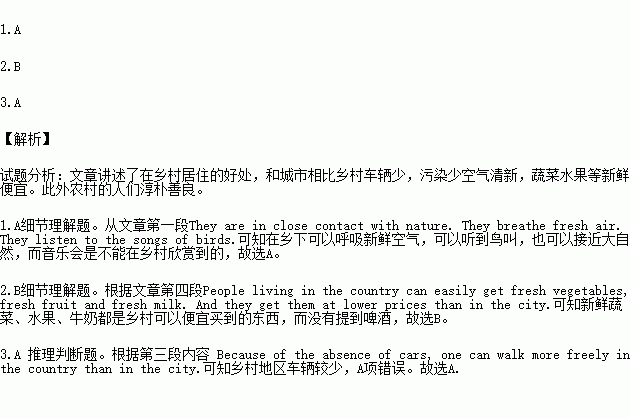题目内容
People living in the country enjoy several advantages that people living in the city cannot enjoy. They are in close contact with nature. They make friends with trees and stones. They can own dogs. They breathe fresh air. They fight with strong winds. They listen to the songs of birds.
This contact with nature is good for health. There are many diseases that are common in the city. but are not to be found in the country. For example, near-sightedness is almost unknown to country people.
Because of the absence of cars, one can walk more freely in the country than in the city. There are no rules of the road, nor traffic signs to obey.
People living in the country can easily get fresh vegetables, fresh fruit and fresh milk. And they get them at lower prices than in the city.
Country life is economical in other ways, too. There are practically no temptations(诱惑)to waste money.
Country people are mostly honest. They say what they mean, and make and keep promises with sincerity(诚意). They do not put on air. They do not pretend to have those ridiculous(荒谬的)manners which are necessary in what we call polite society.
1.What can’t country people often enjoy?
A. Musical concerts. B. Fresh air.
C. Song of birds. D. Close contact with nature.
2.What is probably more expensive in country than in the city?
A.Vegetables. B.Beer. C.Milk. D.Fruit.
3.What is NOT true of country life?
A.The traffic accident rate is very high in the country.
B.Living in the country saves one a lot of money.
C.Country people enjoy better health than the city people.
D.Country people are honest.
 A加金题 系列答案
A加金题 系列答案 全优测试卷系列答案
全优测试卷系列答案
